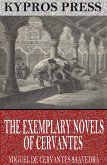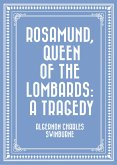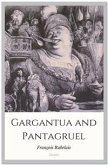George Bernard Shaw
The Man of Destiny (eBook, ePUB)
2,99 €
inkl. MwSt.
Sofort per Download lieferbar
George Bernard Shaw
The Man of Destiny (eBook, ePUB)
- Format: ePub
- Merkliste
- Auf die Merkliste
- Bewerten Bewerten
- Teilen
- Produkt teilen
- Produkterinnerung
- Produkterinnerung

Bitte loggen Sie sich zunächst in Ihr Kundenkonto ein oder registrieren Sie sich bei
bücher.de, um das eBook-Abo tolino select nutzen zu können.
Hier können Sie sich einloggen
Hier können Sie sich einloggen
Sie sind bereits eingeloggt. Klicken Sie auf 2. tolino select Abo, um fortzufahren.

Bitte loggen Sie sich zunächst in Ihr Kundenkonto ein oder registrieren Sie sich bei bücher.de, um das eBook-Abo tolino select nutzen zu können.
- Geräte: eReader
- ohne Kopierschutz
- eBook Hilfe
- Größe: 0.61MB
- Upload möglich
Andere Kunden interessierten sich auch für
![The Philanderer (eBook, ePUB) The Philanderer (eBook, ePUB)]() George Bernard ShawThe Philanderer (eBook, ePUB)2,99 €
George Bernard ShawThe Philanderer (eBook, ePUB)2,99 €![Press Cuttings (eBook, ePUB) Press Cuttings (eBook, ePUB)]() George Bernard ShawPress Cuttings (eBook, ePUB)2,99 €
George Bernard ShawPress Cuttings (eBook, ePUB)2,99 €![The Poems and Verses of Charles Dickens (eBook, ePUB) The Poems and Verses of Charles Dickens (eBook, ePUB)]() Charles DickensThe Poems and Verses of Charles Dickens (eBook, ePUB)3,99 €
Charles DickensThe Poems and Verses of Charles Dickens (eBook, ePUB)3,99 €![The Poems and Verses of Charles Dickens (eBook, ePUB) The Poems and Verses of Charles Dickens (eBook, ePUB)]() Charles DickensThe Poems and Verses of Charles Dickens (eBook, ePUB)8,99 €
Charles DickensThe Poems and Verses of Charles Dickens (eBook, ePUB)8,99 €![The Exemplary Novels of Cervantes (eBook, ePUB) The Exemplary Novels of Cervantes (eBook, ePUB)]() Miguel de Cervantes SaavedraThe Exemplary Novels of Cervantes (eBook, ePUB)1,99 €
Miguel de Cervantes SaavedraThe Exemplary Novels of Cervantes (eBook, ePUB)1,99 €![Rosamund, Queen of the Lombards: A Tragedy (eBook, ePUB) Rosamund, Queen of the Lombards: A Tragedy (eBook, ePUB)]() Algernon Charles SwinburneRosamund, Queen of the Lombards: A Tragedy (eBook, ePUB)1,99 €
Algernon Charles SwinburneRosamund, Queen of the Lombards: A Tragedy (eBook, ePUB)1,99 €![Gargantua and Pantagruel (eBook, ePUB) Gargantua and Pantagruel (eBook, ePUB)]() François RabelaisGargantua and Pantagruel (eBook, ePUB)2,49 €
François RabelaisGargantua and Pantagruel (eBook, ePUB)2,49 €-
-
-
Produktdetails
- Verlag: Interactive Media
- Erscheinungstermin: 17. August 2018
- Englisch
- ISBN-13: 9781787247840
- Artikelnr.: 53614088
George Bernard Shaw (1856 - 1950). Irish playwright, author, political activist. George Bernard Shaw was born in Dublin 1856. He was sent to various schools in Dublin but developed a great dislike for the formalised education systems and widespread use of corporal punishment which was prevalent at the time. After working as a clerk in Dublin for several years, in 1876, Shaw left for London to join his mother who was living there. In London, he began reading extensively and writing his first novels. He also became increasingly devoted to the ideals of socialism. He joined the Fabian society and became one of its leading writers and activists, inspiring and helping activists such as Annie Besant. With fellow Fabians such as Sidney and Beatrice Webb, he helped found the London School of Economics (LSE) after receiving private bequests. In 1898 he married Charlotte Payne Townshend, a fellow Irish Fabian. The marriage was never consummated and they remained childless. In 1906, they moved to Ayot St Lawrence in Hertfordshire, where they lived for the remainder of their lives. By the 1890s, Shaw's plays were being performed in London. The income from his plays enabled him to devote his life to writing. Like his contemporary, Oscar Wilde, Shaw's plays were popular for their biting wit and humour. His plays were in contrast to many Victorian plays which tended to be sentimental, escapist and lacking in satire. Shaw wrote he was influenced by Henrik Ibsen who helped pioneer more realistic modern drama. As a committed Socialist, Shaw infused his plays with his concepts of social justice and issues of class. For example, one of his best known plays Pygmalion (1912-13) (later made into a film and musical My Fair Lady) deals with the class divide which characterised British society at the time. However, to the disappointment of Shaw, his plays were mainly enjoyed as entertainment, rather than political commentary. As well as plays, Shaw wrote novels, short stories and was a noted literary critic. In particular, he was influential in criticising the Victorian preference for performing edited Shakespeare plays. By the start of the First World War, Shaw was a well-known playwright, so his strident opposition to the First World War gained him much criticism. He felt governments had coerced the population into needless wars. In Heartbreak House (1919) he said: "It is said that every people has the Government it deserves. It is more to the point that every Government has the electorate it deserves; for the orators of the front bench can edify or debauch an ignorant electorate at will. Thus our democracy moves in a vicious circle of reciprocal worthiness and unworthiness."







